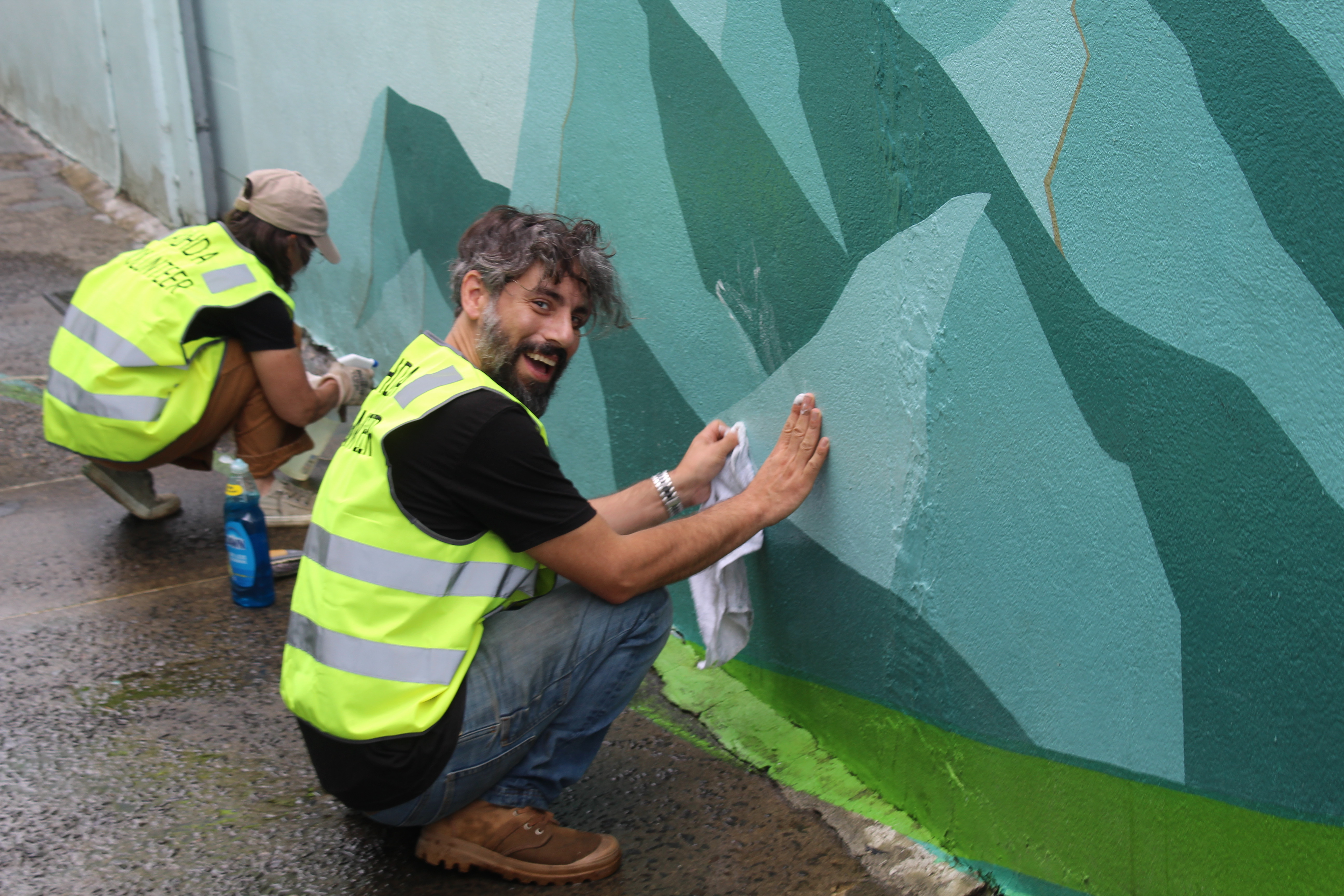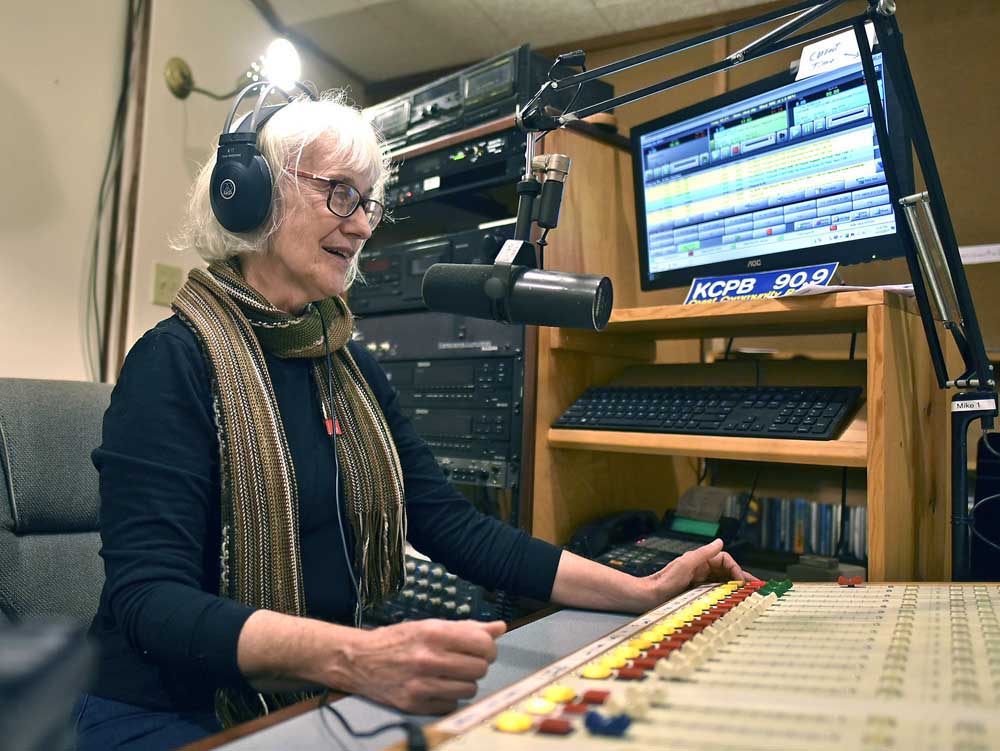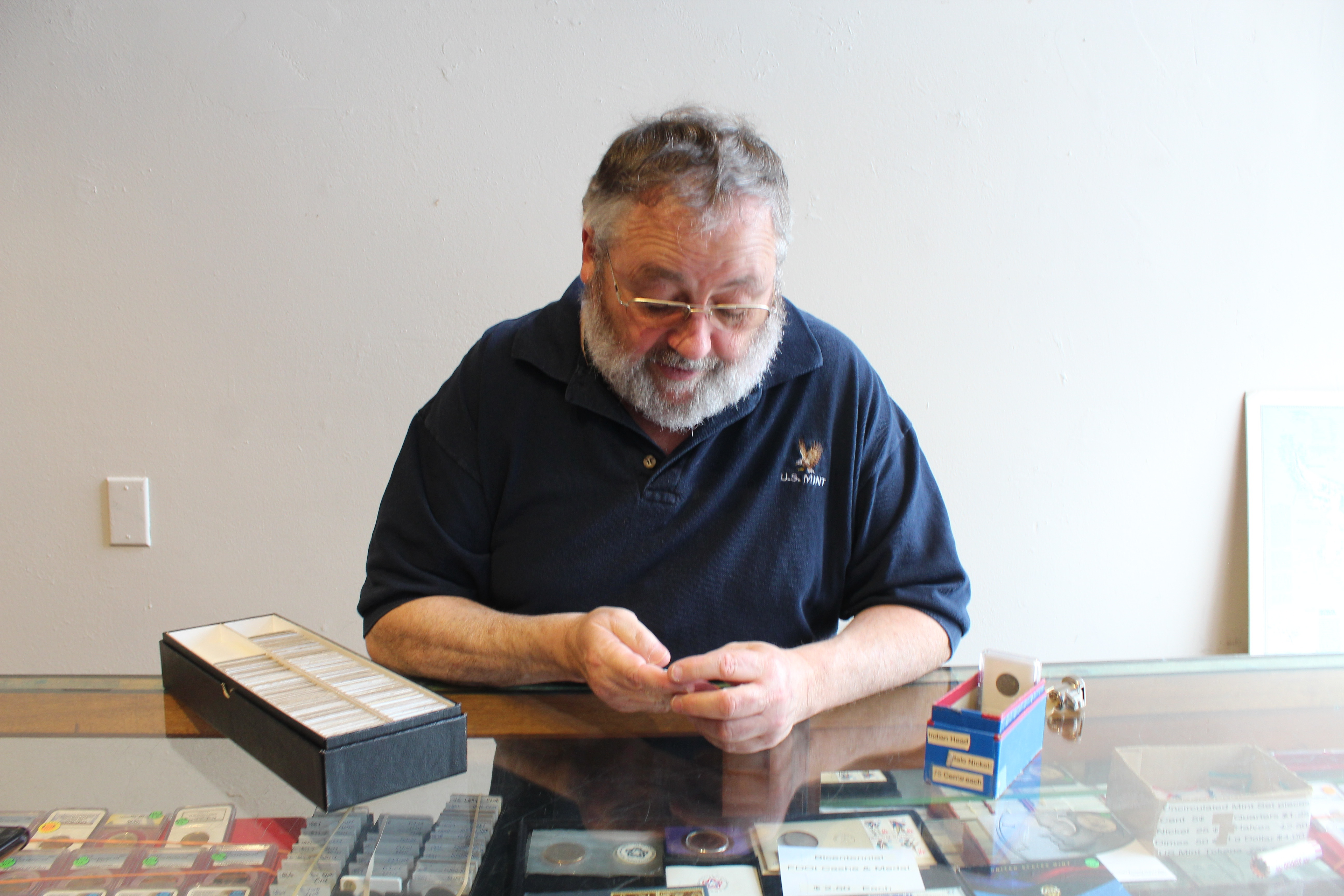Behind the News: ‘Solutions really are somewhat elusive’
Published 12:30 am Saturday, November 6, 2021

- Geoff Spalding is the Astoria police chief.
Federal court rulings have made it harder for cities to prohibit the homeless from camping in public places when there are no shelter beds available.
Trending
The rulings are rooted in the Eighth Amendment, which protects against excessive fines and cruel and unusual punishment.
In Oregon, a new state law requires that local regulations against sitting, lying, sleeping or keeping warm in public places must be objectively reasonable to people experiencing homelessness.
With the law set to take effect in July 2023, some smaller cities are looking at year-round homeless shelters.
Trending
“I do think there’s a need,” said Astoria Police Chief Geoff Spalding, who leads the city’s homelessness solutions task force. “I’ve come to that realization after some time that every community should be doing something like that, because if we’re the only ones doing it, it has the potential to bring more people here that we’re not going to be able to help.”
Spalding, who had retired as the police chief in Beaverton before taking charge of the Astoria Police Department in 2017, has been involved with the task force since it was created four years ago.
In an interview, Spalding talked about the challenges the task force has faced, government restrictions on bad behavior and crisis response calls to police.
Q: The homelessness solutions task force has been effective at bringing people together to discuss options, but there has not been a lot of concrete action. What is your vision for the task force going forward?
A: I would agree with — I’ll call it criticism — because there’s actually been some people that have felt that we’re not accomplishing a lot.
One of the things I’ve always said is, to me, one of the biggest values of the whole solutions task force is the fact that we’ve built relationships with the different social service partners, which we would have had otherwise, but maybe not to the extent we do.
Everybody in that group now feels very comfortable picking up the phone and calling somebody else and having a conversation and sitting down. I wouldn’t have had the same good relationship with CCA (Clatsop Community Action) as I do as a big part of that meeting, or CBH (Clatsop Behavioral Healthcare) or any of the other three-letter groups.
To me, if we’ve accomplished nothing else other than the building of some really important relationships, we’ve really made our mark.
Probably in our first meeting, when we were even discussing what do we want to call this group, I think one of the members threw out, instead of just homeless task force, we want to call it the homeless solutions task force. We want to come up with solutions.
And, I think, after having done this for four years now, solutions really are somewhat elusive.
We are in a rural community with very limited resources. Even communities that have lots of resources are still struggling with this challenge. We’ve seen the articles — Seattle that spent a billion dollars on the issue and the problem got worse. So money is not always the solution.
It’s challenging. We’re having a hard time finding housing for new employees that want to come here. Can you imagine how hard it would be for someone that’s unhoused to find housing? And so it’s just a tremendous challenge.
In the meantime, how do we address the individuals and make sure that they’re getting the appropriate care they need on many levels? I would say that out of everything that we have accomplished, probably one of the most significant is bringing forward the two homeless liaisons.
Q: The 9th U.S. Circuit Court of Appeals ruling in Martin v. City of Boise and Oregon law restricts cities from prohibiting homeless people from camping in public places if there are no adequate shelter beds available. Do you think Astoria should pursue a year-round homeless shelter?
A: I think somebody should.
Whether it’s Astoria, whether it’s a county function, whether it’s a private not-for-profit entity, I think in order for us to be able to — like you said, with Martin v. Boise or with the Grants Pass decision and now the most recent House Bill 3115 — it’s all driving us in that direction, where if we want to be able to enforce homeless camping, then we are going to have to have alternative locations for somebody to go to.
In the Grants Pass case, they were pretty specific that it has to be basically within the confines of the city limits. I think we’re small enough here that it would be considered probably mostly the county would qualify.
I do think there’s a need. I’ve come to that realization after some time that every community should be doing something like that, because if we’re the only ones doing it, it has the potential to bring more people here that we’re not going to be able to help.
Q: Before the coronavirus pandemic, Astoria was considering chronic nuisance and exclusion zone ordinances to discourage bad behavior from homeless people. What happened to those ideas?
A: First, what I would like to say about that is —and I tried to make this very clear when we first presented this to council — this is not about homeless individuals. It’s about behavior.
And I truly mean that, because there are other people that are doing some things that are inappropriate, that are quality-of-life-type crimes, that aren’t homeless. We don’t want to target homeless people. We just want to target the bad behavior.
So in answer to what happened to it, I would say, probably, like you said, pre-pandemic — the pandemic happened to us. It’s a big part of why this did get put on the back burner.
There’s a lot of other agencies, a lot of cities, that have actually instituted either a chronic nuisance ordinance or an exclusion zone-type ordinance. There’s been pros and cons. We wanted to make sure that we did the appropriate amount of research and make sure that this was going to work for our community.
It’s not so much the pandemic itself, it’s the extra load of work that that put on everybody. So it’s been a challenge …
Q: Each year, the behavior of a small number of people accounts for hundreds of calls to Astoria police. Many are crisis response calls linked to issues such as homelessness, mental illness and substance abuse. How should the city respond to this challenge?
A: It’s not just a city problem. It’s a social service problem.
Again, I think the biggest thing that I’ve found is everybody is dealing with limited resources.
The crisis response team (from Clatsop Behavioral Healthcare), I would call it, on some level, a limited success, simply because it’s one more tool that we have. I’m hearing of specific incidences where we’ve been able to get hold of somebody — sometimes it will simply be just by phone because they’re down in Seaside at the time, sometimes they’re able to respond — but, again, if they don’t have the ability to house somebody, somewhere, there’s only so much they’re going to do.
The threshold is so high in this state in order to commit somebody. It really takes almost — unfortunately — a serious event before somebody can be committed. Everybody is kind of putting their hands up and saying, ‘How can we help these individuals when there’s no resources?’
I guess the bigger picture here is like we started the conversation with, is that, as a police department, we’re kind of stuck in the middle a little bit.
We have people pulling at us from both sides. We have one side of the community that is tired of the behavior that they’re seeing, the feces, the cat-calling, the loitering, which isn’t illegal, of course — but that’s what people see. The perception of feeling unsafe, which came out of our survey.
So they’re seeing those kind of problems, and they don’t want to see this element in our community.
And then we have the other side of the community that wants to make sure that we’re housing some of these individuals, we’re getting them the help they need.
And so we’re stuck in the middle. We get the calls.
When the whole ‘defund the police’ argument came out, I was actually in support of it, from the perspective that I believe social service agencies should be handling most of these calls and not law enforcement. I always looked at it, at least Astoria, anyway, we’re already underfunded. So at least keep the funding at the same level, but let’s find solutions to getting assistance for some of these individuals.
And that’s part of the discussions we’re having right now with the homeless liaisons. Are we going to get to a point where, perhaps, somebody can call in, and our dispatcher can actually call CCA and they will send out a homeless liaison and they can deal with a low-level-type thing — maybe someone sleeping in the doorway of a business, not something a law enforcement person needs to be involved in?
We just want to make sure that we can keep these people safe. It just gives us another option and reduces our calls for service. So getting back to one of your initial questions, ‘What’s my vision for the homeless solutions task force?’ My vision has always been, how do we reduce calls for service, make it so our officers don’t have to respond to as many calls?
You talked about earlier, with the ‘frequent flyers.’ We’re getting some individuals that have racked up over a hundred calls, just themselves, in a very short period of time. And it’s just a tremendous drain on resources.
Q: What is one thing you have learned about homelessness you wish more people knew?
A: That one size doesn’t fit all. Every person is a unique individual with a unique reason that they’re in the place they’re in.
It’s either mental illness, it’s either substance abuse-related, it’s either they’ve fallen on bad luck or simply a chosen lifestyle.
And I think a lot of people really don’t believe that there’s some people out there that really want to live this way …
That would probably be one of the biggest things. The other thing, too, is that there’s just no easy answers.
We struggle with the same thing that everybody else does. As a law enforcement agency, we want the same thing that most everybody else does, and that is getting individuals help who truly want the help.









